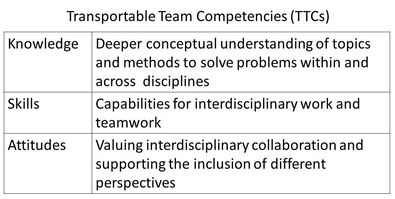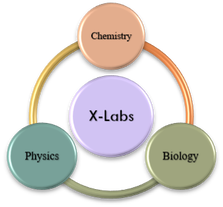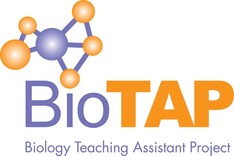RESEARCH
Our research focuses on strategies to improve student engagement, scientific literacy, and the development of research and team science competencies. We also have interests in effective professional development for faculty, graduate students, and undergraduate teaching assistants on effective instruction. We currently have multiple research projects, most NSF-funded, that are outlined below.
USING C* SCIENCE TO TRANSFORM LEARNING AND BROADEN PARTICIPATION IN SCIENCE

Citizen science and community science (c* science) use participatory science methods to investigate phenomena. Involvement in participatory research has been shown to improve understanding of the scientific method and belief that one can do science, as well as demonstrate the relevance of science to peoples’ homes, communities, and lives. This NSF-funded project (Heather Vance-Chalcraft [ECU], Allen Hurlbert [University of North Carolina – Chapel Hill], and Terry Gates [North Carolina State University], PIs) involves the creation of the Undergraduate Student Experiences with C* Science (USE Cit Sci) Network to determine the best practices associated with using participatory science projects in higher education. The USE Cit Sci network strives to create a diverse community of practice invested in using c* science with undergraduate students to i) engage students in authentic science practices, ii) improve student and instructor learning outcomes, and iii) broaden participation in science.
INTERVENTIONS TO IMPROVE TRANSFER STUDENT SUCCESS
An increasing percentage of students at four-year universities have transferred from another institution. Transfer students, particularly those in STEM fields, frequently drop out at higher rates, and have lower GPAs, than traditional university students. The reasons for this lower success rate have been determined to include both academic and social factors. Thus, a holistic approach is necessary to increase the retention and success of transfer students. We are offering pre-transfer interventions, mentoring, and experience with research (PRIMER), in isolation and combination, to determine how to better support and retain Biology transfer students at East Carolina University (ECU). The overall goal of PRIMER is to identify interventions that promote transfer student success in Biology, resulting in higher academic achievement, increased retention and persistence in STEM fields, and a greater sense of community at ECU by transfer students. This work is being funded by NSF with Heather Vance-Chalcraft (ECU), Thomas Gould (Pitt Community College), Jean-Luc Scemama (ECU), and John Stiller (ECU), PIs. Jennifer Teshera-Levye is the postdoctoral associate with this project.
TEAM EXPERIENCES AND MENTORING STRATEGIES FOR UNDERGRADUATE RESEARCH (TEaMS-UR)

Solving global challenges and developing advanced technologies requires the preparation of diverse teams of scientists and engineers who can collaborate effectively. TEaMS-UR investigates how factors such as course setting, mentorship, and team training impact student participation and experiences in course-based undergraduate research experiences (CUREs). The project provides an opportunity for approximately 6,000 students to participate in inquiry-driven courses with comprehensive foundations of research and team science. In addition to the uni-disciplinary CUREs, multi-disciplinary CUREs are being added to allow students in courses from different STEM domains to collaboratively solve research problems as a team using the knowledge, skills, and attitudes afforded through transferable team competencies received throughout the project (e.g., processes for knowledge integration, interdisciplinary communication and interpersonal skills, valuing and understanding of other disciplines). This work is being funded by NSF to Joi Walker (ECU Chemistry), Heather Vance-Chalcraft (ECU Biology), Mary Farwell (ECU REDE), Stephen Moysey (ECU Water Resources Center), and Brian Sylcott (ECU Engineering).
PRACTICE-FOCUSED UNDERGRADUATE LAB TRANSFORMATION FOR BIOLOGY, CHEMISTRY, & PHYSICS

The X-Labs project explores the efficacy of different instructional approaches to transform the introductory laboratory courses in biology, chemistry and physics at East Carolina University (ECU). The project’s goal is to transform foundational undergraduate laboratory courses through an inclusive curriculum across disciplines, using a common laboratory structure, language and emphasis for instruction. Multiple types of published, validated interdisciplinary assessments are being used, allowing triangulation of data within and between disciplines. The continuity of instruction is expected to increase student ability to engage in science practices across STEM disciplines. This work will inform science educators on how to reframe disciplinary laboratory courses with a focus on science practices. This work is being funded by NSF to Joi Walker (ECU Chemistry), Heather Vance-Chalcraft (ECU Biology), and Steven Wolf (ECU Physics).
THE IMPACT OF GRADUATE TEACHING ASSISTANT TRAINING ON SELF-EFFICACY AND TEACHING PRACTICES

As part of an NSF-funded Research Coordination Network (Elisabeth Schussler, University of Tennessee-Knoxville, PI) entitled the Biology Teaching Assistant Program (BioTAP), I am working to identify best practices in graduate teaching assistant (GTA) training programs. GTAs deliver a substantial amount of instruction to biology undergraduate students during their first year or two, yet little attention has been paid to the training of graduate students for this responsibility. I am studying different types of graduate student training experiences to determine the impact on GTA knowledge of inquiry-based labs and student-centered learning, GTA self-confidence, and GTA classroom practice.
INVESTIGATING TEACHERS' USE OF TASKS, DISCOURSE, & TECHNOLOGY IN HIGH-NEED SCHOOL DISTRICTS
The latest ECU-Noyce Scholars Program recruits individuals currently enrolled in, or graduated with, a science or mathematics major to become trained as a highly qualified science or mathematics middle school or high school teacher. The ECU-Noyce Scholar program will advance the field’s knowledge of how to prepare and support STEM teachers via existing programs and mentoring. It also features an induction model that includes a virtual learning community as well as face-to-face coaching in the first two years of teaching. The project will also document factors that motivate STEM majors to pursue teaching careers, barriers that interfere with this pursuit, and factors that facilitate the success and retention of new mathematics and science teachers. This work is being funded by NSF to Anthony Thompson (ECU Education), Charity Cayton (ECU Education), Claudia Jolls (ECU Biology), Elizabeth Doster (ECU Education), and Heather Vance-Chalcraft (ECU Biology).